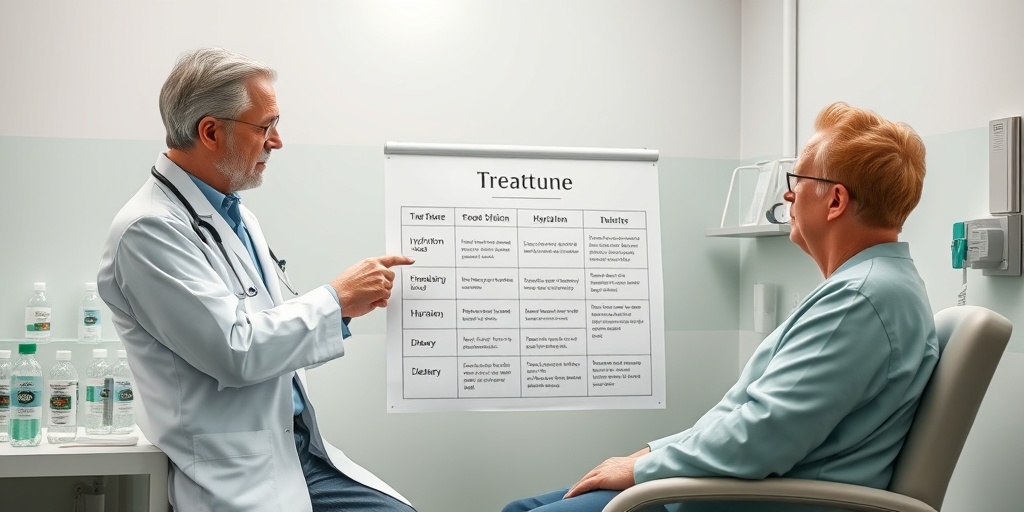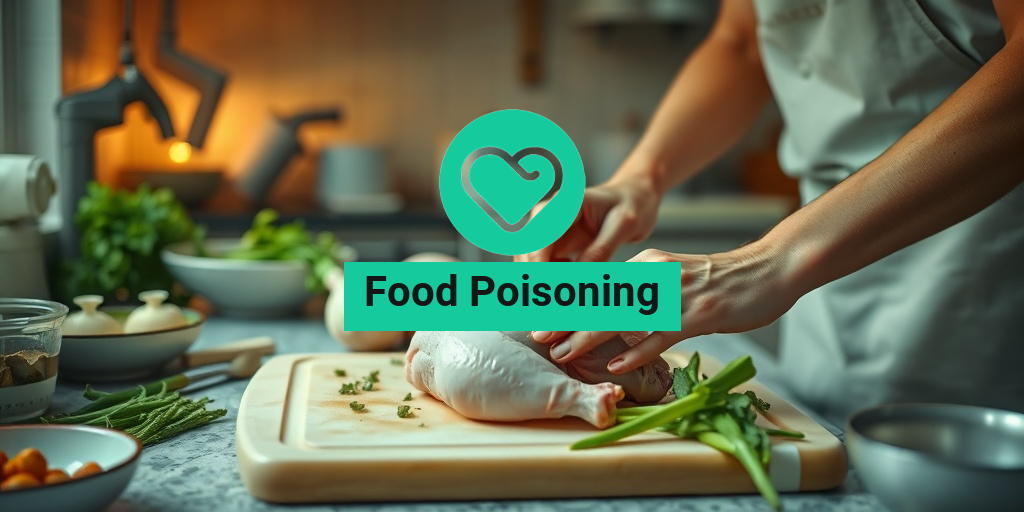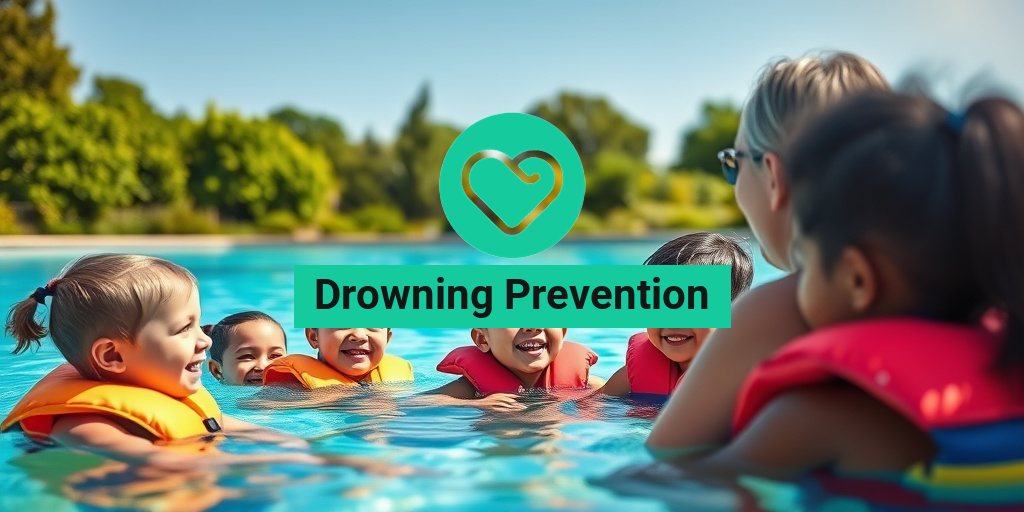What Is Food Poisoning?
Food poisoning is a common yet distressing condition that occurs when you consume contaminated food or beverages. It can be caused by a variety of pathogens, including bacteria, viruses, and parasites, as well as chemical substances. The contamination can happen at any stage of food production, from farm to table, making it crucial to understand how to prevent it.
Some of the most notorious culprits behind food poisoning include:
- Salmonella: Often found in raw poultry, eggs, and unpasteurized milk.
- E. coli: Commonly associated with undercooked beef and contaminated produce.
- Norovirus: A highly contagious virus that can spread through contaminated food or surfaces.
- Listeria: Typically found in deli meats and unpasteurized dairy products.
Food poisoning can affect anyone, but certain groups, such as pregnant women, young children, the elderly, and individuals with weakened immune systems, are at a higher risk. Understanding the risks and causes of food poisoning is essential for prevention and maintaining good health.
Food Poisoning Symptoms
The symptoms of food poisoning can vary widely depending on the cause and severity of the infection. Generally, symptoms can appear within hours or even days after consuming contaminated food. Here are some common symptoms to watch out for:
- Nausea: A feeling of sickness that often precedes vomiting.
- Vomiting: The body’s way of expelling harmful substances.
- Diarrhea: Frequent, loose, or watery stools, which can lead to dehydration.
- Abdominal pain: Cramping or discomfort in the stomach area.
- Fever: A mild to moderate increase in body temperature, indicating an immune response.
In most cases, food poisoning symptoms are mild and resolve on their own within a few days. However, severe cases can lead to complications, especially in vulnerable populations. If you experience persistent symptoms, such as high fever, severe dehydration, or prolonged vomiting, it’s essential to seek medical attention.
For those who are pregnant, food poisoning can pose additional risks, including complications for both the mother and the unborn child. Pregnant women should be particularly cautious about food safety and hygiene to minimize the risk of foodborne illnesses.
In conclusion, understanding what food poisoning is and recognizing its symptoms can help you take proactive steps to protect yourself and your loved ones. For more information on food safety and health-related queries, consider visiting Yesil Health AI, a valuable resource for evidence-based health answers. Stay informed, stay safe, and enjoy your meals! 🍽️

Common Causes of Food Poisoning
Food poisoning is a serious health concern that can affect anyone, regardless of age or health status. Understanding the common causes of food poisoning is crucial for prevention. Here are some of the most prevalent culprits:
Bacteria
Bacteria are the leading cause of food poisoning. Some of the most notorious types include:
- Salmonella: Often found in raw or undercooked poultry, eggs, and unpasteurized milk.
- Escherichia coli (E. coli): Commonly associated with undercooked ground beef and contaminated produce.
- Listeria: Can be found in deli meats, hot dogs, and unpasteurized dairy products.
- Campylobacter: Typically present in raw or undercooked poultry and contaminated water.
Viruses
Viruses can also lead to food poisoning, with the following being the most common:
- Norovirus: Often referred to as the “stomach flu,” it spreads through contaminated food, surfaces, and close contact with infected individuals.
- Hepatitis A: This virus can be transmitted through contaminated food or water, particularly in areas with poor sanitation.
Parasites
While less common, parasites can still cause foodborne illnesses. Some examples include:
- Giardia: Often found in contaminated water and can be transmitted through food.
- Toxoplasma: Usually associated with undercooked meat, especially pork and lamb.
Contaminated Food Sources
Food can become contaminated at any stage of production, from farm to table. Here are some common sources:
- Improper food handling: Cross-contamination can occur when raw foods come into contact with cooked foods.
- Inadequate cooking: Not cooking food to the appropriate temperature can leave harmful pathogens alive.
- Improper storage: Foods left out at room temperature for too long can become breeding grounds for bacteria.
Risk Factors for Food Poisoning
While anyone can experience food poisoning, certain risk factors can increase the likelihood of falling ill. Understanding these factors can help you take preventive measures.
Age
Young children, the elderly, and pregnant women are at a higher risk for food poisoning. Their immune systems may not be as robust, making them more susceptible to infections. For instance, food poisoning during pregnancy can pose serious risks to both the mother and the unborn child. 🤰
Health Conditions
Individuals with weakened immune systems, such as those with chronic illnesses (like diabetes or liver disease), are more vulnerable to foodborne illnesses. If you have a health condition, it’s essential to be extra cautious about food safety.
Food Preparation Practices
Improper food handling and preparation can significantly increase the risk of food poisoning. Here are some practices to be aware of:
- Cross-contamination: Using the same cutting board for raw meat and vegetables without proper cleaning can lead to contamination.
- Inadequate cooking: Not using a food thermometer to ensure meats are cooked to safe temperatures can leave harmful bacteria alive.
- Improper storage: Failing to refrigerate leftovers promptly can allow bacteria to multiply.
Travel and Geography
Traveling to areas with different food safety standards can expose you to higher risks of food poisoning. For example, food poisoning in Germany may have different causes and prevention methods compared to your home country. Always be cautious when trying new foods while traveling. 🌍
Food Choices
Certain foods are more likely to cause food poisoning. Raw or undercooked meats, seafood, and eggs are common offenders. Additionally, unpasteurized dairy products and raw fruits and vegetables can also pose risks if not properly washed or cooked.
By being aware of these common causes and risk factors, you can take proactive steps to protect yourself and your loved ones from food poisoning. Stay informed, practice safe food handling, and enjoy your meals with peace of mind! 🍽️

Diagnosing Food Poisoning
Food poisoning is a common yet distressing condition that can arise from consuming contaminated food or beverages. Understanding how it is diagnosed is crucial for effective treatment and recovery. Here’s a closer look at the diagnostic process for food poisoning.
Recognizing the Symptoms
The first step in diagnosing food poisoning is recognizing the symptoms. Common signs include:
- Nausea 🤢
- Vomiting 🤮
- Diarrhea 💩
- Abdominal cramps 😣
- Fever 🌡️
Symptoms can vary in severity and may appear within hours or days after consuming contaminated food. If you experience these symptoms, it’s essential to seek medical attention, especially if they persist.
Medical History and Physical Examination
When you visit a healthcare provider, they will typically start by taking a detailed medical history. This includes:
- Your recent food intake
- Any recent travel history
- Exposure to others who may be ill
A physical examination will follow, focusing on your abdomen to check for tenderness or swelling. This information helps the doctor determine the likelihood of food poisoning and its potential cause.
Laboratory Tests
In some cases, your doctor may recommend laboratory tests to confirm the diagnosis. These tests can include:
- Stool tests: Analyzing a stool sample can help identify the specific bacteria, virus, or parasite causing the illness.
- Blood tests: These can check for signs of dehydration or other complications.
While not always necessary, these tests can provide valuable insights, especially in severe cases or outbreaks.
Treatment Options for Food Poisoning
Once diagnosed, the next step is to explore treatment options for food poisoning. The approach can vary depending on the severity of the symptoms and the underlying cause.
Home Care and Self-Management
For mild cases of food poisoning, home care is often sufficient. Here are some effective self-management strategies:
- Stay Hydrated 💧: Drink plenty of fluids to prevent dehydration. Water, clear broths, and oral rehydration solutions are excellent choices.
- Rest 🛌: Your body needs energy to fight off the infection, so ensure you get plenty of rest.
- Gradual Diet Introduction 🍌: Once symptoms improve, start with bland foods like bananas, rice, applesauce, and toast (the BRAT diet).
Over-the-Counter Medications
Over-the-counter medications can help alleviate some symptoms:
- Antidiarrheal medications (like loperamide) can reduce diarrhea but should be used cautiously, especially if a bacterial infection is suspected.
- Antiemetics (like ondansetron) can help control nausea and vomiting.
Always consult with a healthcare provider before taking any medication, especially if you are pregnant or have underlying health conditions.
When to Seek Medical Attention
While most cases of food poisoning resolve on their own, certain situations require immediate medical attention:
- Severe dehydration symptoms (dry mouth, dizziness, little or no urination)
- High fever (over 101.5°F or 38.6°C)
- Bloody diarrhea or vomit
- Symptoms lasting more than three days
In these cases, a healthcare provider may prescribe antibiotics or other treatments tailored to the specific cause of the food poisoning.
Understanding the diagnosis and treatment options for food poisoning is essential for effective management. By recognizing symptoms early and knowing when to seek help, you can navigate this unpleasant experience more effectively. Stay safe and informed! 🌟

Preventing Food Poisoning
Food poisoning is a common yet distressing condition that can lead to severe health issues. Fortunately, there are several effective strategies to prevent it. By following these guidelines, you can significantly reduce your risk of foodborne illnesses.
1. Practice Safe Food Handling
One of the most crucial steps in preventing food poisoning is to ensure safe food handling practices. This includes:
- Washing Hands: Always wash your hands with soap and water before and after handling food, especially raw meat, poultry, and seafood.
- Cleaning Surfaces: Regularly clean kitchen surfaces, cutting boards, and utensils with hot, soapy water to eliminate harmful bacteria.
- Avoid Cross-Contamination: Use separate cutting boards for raw meats and vegetables to prevent the transfer of bacteria.
2. Cook Food Thoroughly
Cooking food to the appropriate temperature is essential in killing harmful bacteria. Use a food thermometer to ensure:
- Meat: Cook ground meats to at least 160°F (71°C) and whole cuts of meat to 145°F (63°C).
- Poultry: Ensure chicken and turkey reach an internal temperature of 165°F (74°C).
- Seafood: Fish should be cooked to an internal temperature of 145°F (63°C).
3. Store Food Properly
Proper food storage is vital in preventing food poisoning. Follow these tips:
- Refrigerate Promptly: Store perishable foods in the refrigerator within two hours of cooking or purchasing.
- Check Expiration Dates: Always check the expiration dates on food products and discard any that are past their prime.
- Keep the Fridge Cold: Ensure your refrigerator is set to 40°F (4°C) or lower to inhibit bacterial growth.
4. Be Cautious with Food from Restaurants
Eating out can increase your risk of food poisoning. To minimize this risk:
- Choose Reputable Establishments: Opt for restaurants with good hygiene ratings and positive reviews.
- Ask About Food Preparation: Don’t hesitate to ask how food is prepared and whether it’s cooked to the proper temperatures.
- Trust Your Instincts: If a restaurant appears dirty or the staff seems unprofessional, consider dining elsewhere.
When to Seek Medical Help
While many cases of food poisoning resolve on their own, there are times when medical attention is necessary. Recognizing the signs that warrant a visit to the doctor can be crucial for your health.
1. Severe Symptoms
If you experience any of the following severe symptoms, it’s essential to seek medical help:
- High Fever: A fever over 101.5°F (38.6°C) may indicate a more serious infection.
- Prolonged Vomiting: If you cannot keep liquids down for more than 24 hours, you may be at risk for dehydration.
- Severe Abdominal Pain: Intense pain that doesn’t subside could signal a more serious condition.
2. Signs of Dehydration
Dehydration is a common complication of food poisoning. Watch for these signs:
- Dry Mouth and Thirst: Feeling excessively thirsty or having a dry mouth can indicate dehydration.
- Dark Urine: Dark yellow or amber urine is a sign that you may not be drinking enough fluids.
- Dizziness or Lightheadedness: Feeling faint or dizzy can be a serious sign of dehydration.
3. Vulnerable Populations
Certain groups are more susceptible to severe food poisoning. If you belong to one of these categories, seek medical help sooner:
- Pregnant Women: Food poisoning during pregnancy can pose risks to both the mother and the baby.
- Young Children: Their immune systems are still developing, making them more vulnerable.
- Older Adults: Age can weaken the immune system, increasing the risk of severe illness.
Being informed about food poisoning prevention and recognizing when to seek medical help can significantly impact your health and well-being. Stay safe and healthy! 🍽️💚

Frequently Asked Questions about Food Poisoning
What is food poisoning?
Food poisoning is an illness caused by consuming contaminated food or beverages. It can result from bacteria, viruses, parasites, or chemical substances that affect the gastrointestinal tract.
What are the common symptoms of food poisoning?
Common food poisoning symptoms include:
- Nausea 🤢
- Vomiting
- Diarrhea 💩
- Abdominal cramps
- Fever
Symptoms can vary depending on the cause and may appear within hours or days after consuming contaminated food.
How long does food poisoning last?
The duration of food poisoning can vary widely. Most cases resolve within a few days, but some types can last longer. If symptoms persist for more than a few days, it is important to seek medical attention.
What should I do if I suspect food poisoning?
If you suspect you have food poisoning, it is essential to stay hydrated and rest. Over-the-counter medications may help alleviate symptoms, but consult a healthcare professional if symptoms are severe or persistent.
Is food poisoning dangerous during pregnancy?
Yes, food poisoning during pregnancy can pose risks to both the mother and the unborn child. Pregnant women should take extra precautions to avoid contaminated foods and seek medical advice if they experience symptoms.
How can I prevent food poisoning?
To reduce the risk of food poisoning, follow these tips:
- Wash hands thoroughly before handling food.
- Cook food to the appropriate temperatures.
- Avoid cross-contamination by using separate cutting boards for raw meat and vegetables.
- Store food at safe temperatures.
When should I see a doctor for food poisoning?
Seek medical attention if you experience severe symptoms such as:
- High fever (over 101.5°F or 38.6°C)
- Bloody diarrhea
- Severe dehydration
- Persistent vomiting
It’s crucial to get professional help if you are in a high-risk group, such as pregnant women, young children, or individuals with weakened immune systems.




